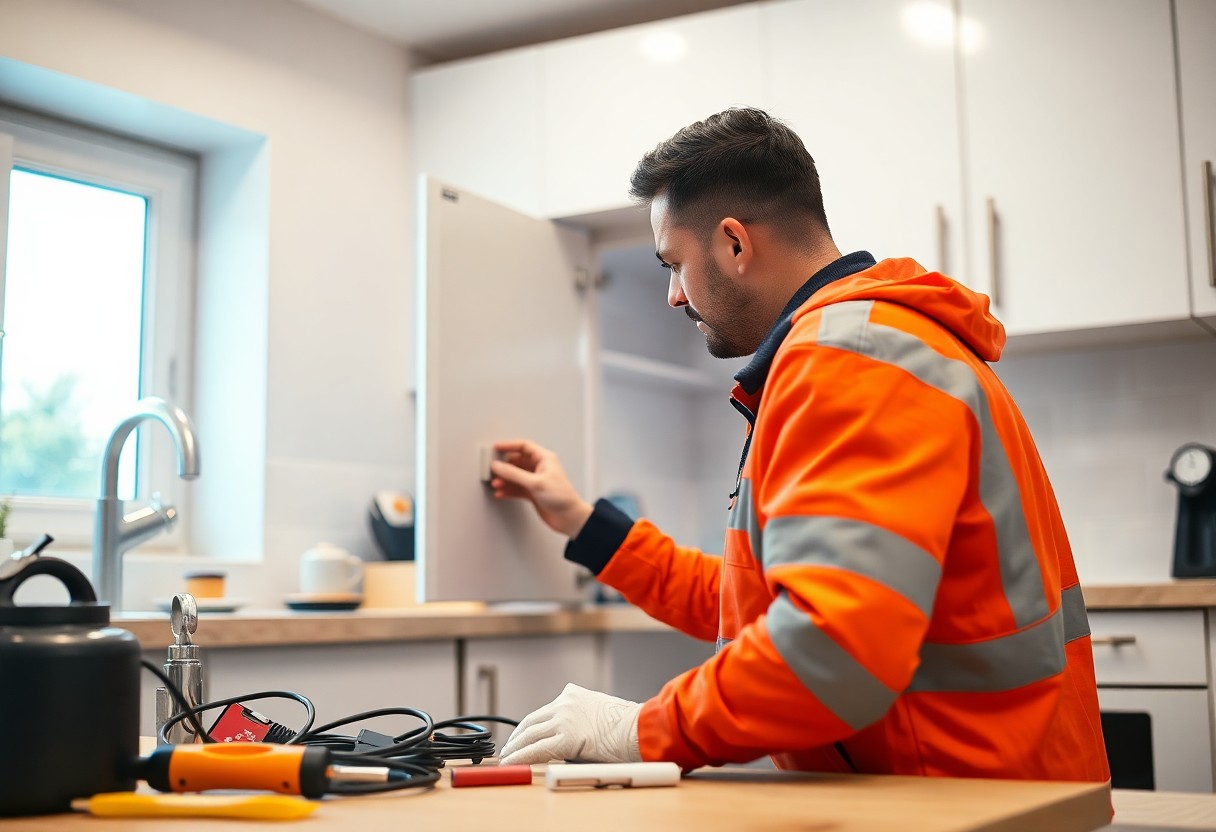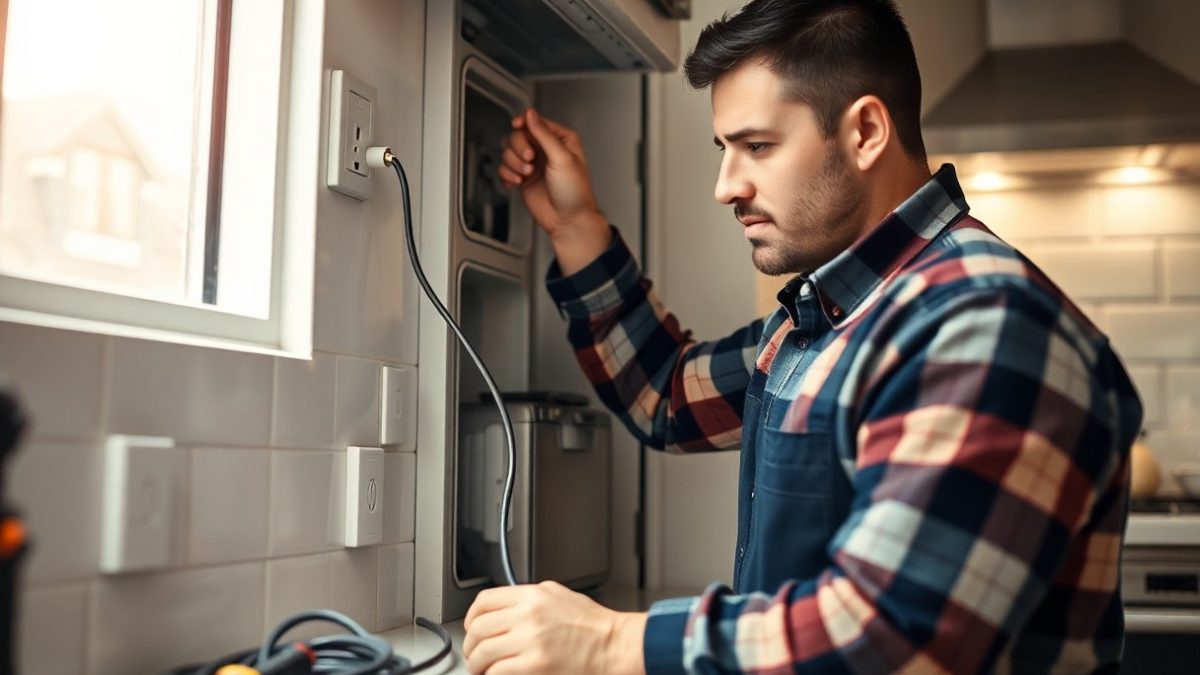
What Are The Unconventional Regulations Surrounding Commercial Electrical Appliance Installations?
October 30, 2024
Are You Utilizing The Right Soldering Techniques For Optimal Electrical Connections?
November 1, 2024With a steadfast focus on proper grounding techniques, you can significantly enhance the safety of your appliance installations. Grounding is an imperative aspect that protects your devices from electrical surges and potential hazards. By implementing a vigilant approach to grounding, you ensure that your appliances function correctly while safeguarding both your home and loved ones from electrical risks. This post will guide you through effective grounding practices, empowering you to take charge of your installation safety.
Understanding Grounding
Before you begin any appliance installation, it’s important to have a solid grasp of grounding. Grounding serves as a protective measure against electrical faults, ensuring that excess electricity can safely dissipate into the ground, thus minimizing risks such as shock and equipment damage. By familiarizing yourself with grounding principles, you can enhance your approach to installation safety.
The Importance of Electrical Grounding
Around your home, the importance of electrical grounding cannot be overstated. It provides a safe path for fault currents to be diverted, protecting both you and your appliances from potential electrical hazards. Without proper grounding, there is an increased risk of electrical shocks, fires, and equipment failure, which compromises safety and your investment.
Common Grounding Methods
The most common grounding methods include using ground rods, grounding plates, and the grounding wire within your electrical system. Each method serves to create a reliable connection to the earth, ensuring that excess electrical energy is effectively dissipated. Choosing the appropriate grounding method is vital for ensuring compliance with local electrical codes and maximizing safety.
This is where understanding these grounding techniques becomes important. Ground rods, typically made of copper or galvanized steel, are driven into the earth to establish a direct connection. Grounding plates, placed beneath the surface, serve a similar purpose. Additionally, the grounding wire integrated into your electrical system links all appliances to the grounding point, protecting against surges and faults. By selecting the right method for your installation and adhering to best practices, you can significantly boost your safety and that of your appliances.
The Risks of Inadequate Grounding
Now that you’ve recognized the significance of proper grounding, it’s important to understand the risks associated with its inadequacy. Grounding your appliances is not merely a recommendation; it is vital for safety. Without adequate grounding, you expose yourself to potential dangers that can lead to serious consequences, including electrical shock, overheating, and appliance damage.
Electrical Shock and Fire Hazards
Inadequate grounding can result in severe electrical shock and fire hazards. Without a proper pathway for electrical currents, the chances of receiving a shock increase significantly, especially during faulty operation. Furthermore, improper grounding can lead to overheating, which can ignite nearby materials, posing a substantial fire risk in your living space.
Impact on Appliance Performance and Longevity
Shock caused by improper grounding doesn’t just threaten your safety; it also affects the performance of your appliances. Appliances require a stable electrical environment to function optimally, and inadequate grounding can lead to erratic behavior and premature wear.
Hazards stemming from poor grounding can diminish the longevity of your appliances. Frequent electrical surges and inconsistent voltage can strain your devices, leading to increased maintenance costs and early replacements. By ensuring proper grounding, you safeguard your appliances’ efficiency and extend their useful life, thus protecting your investment in the long run.
Benefits of a Zealous Grounding Approach
The benefits of a zealous grounding approach stretch beyond mere compliance; they encompass enhanced safety, improved efficiency, and long-term peace of mind. By meticulously grounding your appliances, you can mitigate the risks of electrical shocks and fires, ensuring that you and your family remain safe. For further insights on installation best practices, consider exploring The Book on Radiant Heating: When it makes sense and … to deepen your understanding.
Enhanced Safety Standards
After adopting a zealous grounding approach, you significantly enhance the safety standards of your appliance installations. Proper grounding acts as a protective measure, redirecting excess electricity safely to the ground, thereby reducing the likelihood of dangerous electrical hazards. This proactive step not only protects your appliances but also ensures the well-being of your household.
Improved Appliance Efficiency
Efficiency in appliance performance is improved when you focus on grounding. With a solid grounding system, your appliances can operate at their optimal capacity, preventing electromagnetic interference that can lead to energy waste.
Also, appliances that are properly grounded experience less wear and tear, which can prolong their lifespan. Efficient appliances not only save you money on energy bills but also reduce the frequency of repairs and replacements, leading to a more sustainable and cost-effective household. By investing time in grounding, you enhance both the efficiency and durability of your appliances.
Steps to Ensure Proper Grounding in Installation
After selecting your appliance, it is vital to follow specific steps to ensure proper grounding during installation. Begin by identifying appropriate grounding wire connections and verifying that your electrical system complies with local codes. This meticulous approach not only improves safety but also enhances the performance of your appliance, providing you with peace of mind while using it.
Assessing Existing Grounding Systems
Between the existing grounding systems in your home and the requirements of your new appliance, it is vital to evaluate the effectiveness of your current setup. Inspecting grounding rods, wires, and connections will help you identify potential weaknesses or issues that may compromise safety. By taking the time to assess this infrastructure, you’ll ensure a secure and reliable grounding connection for your new installation.
Techniques for Effective Grounding
Assessing the techniques you use for effective grounding can make all the difference in the safety and functionality of your appliance. This involves selecting appropriate materials, such as copper grounding wires, which are known for their conductivity and durability. Additionally, you should ensure that grounding connections are tightly secured, preventing any loose or faulty connections that could jeopardize safety.
Consequently, implementing these grounding techniques will create a stable electrical environment. You can achieve this by utilizing short grounding paths to reduce resistance and installing an appropriate ground rod with adequate depth. Furthermore, frequent inspection of your grounding system will help avert any potential wear and tear, thus maintaining a reliable operation for your appliances and safeguarding your home.
Regulatory Standards and Compliance
Despite the importance of appliance installation safety, many individuals overlook the necessity of adhering to regulatory standards. Compliance with these standards not only ensures your safety but also protects your property and investment. By familiarizing yourself with the relevant regulations, you can elevate your installation practices and minimize risks, ultimately leading to a safer environment for you and your household.
Overview of National Electrical Codes
For anyone involved in appliance installation, understanding the National Electrical Codes (NEC) is vital. These codes serve as a benchmark for safe electrical design, installation, and inspection, and provide the necessary guidelines to keep systems safe and functional. By adhering to these codes, you can ensure that your installations are compliant and reliable.
Best Practices for Compliance
Above all, implementing best practices for compliance will help you avoid costly mistakes and enhance safety during your appliance installations. This includes familiarizing yourself with local amendments to the NEC, utilizing certified materials, and hiring qualified professionals for complex installations. Regularly reviewing your practices ensures that they align with current standards.
Also, conducting routine checks and assessments of your installations is necessary in maintaining compliance with regulations. Documenting any changes made during installation can provide a comprehensive record of your work, aiding in future inspections. When in doubt, consulting local authorities or professional electricians can provide further clarity on compliance and safety standards, giving you peace of mind as you undertake your appliance installations.

Case Studies: Successful Grounding Implementations
For those looking to enhance their appliance installation safety, several case studies demonstrate the positive impact of grounding. These successful implementations also provide insights that can be applied to your own installations:
- Homeowner A reported a 35% reduction in electrical shock incidents after implementing a grounding system.
- Company B achieved a 40% decrease in equipment failure rates through enhanced grounding techniques.
- Facility C noted zero outages in critical systems during storms after upgrading their grounding strategies.
- Property D saved $10,000 annually by reducing energy consumption linked to poor grounding practices.
Residential Installations
Across various residential installations, homeowners who adopted rigorous grounding methods experienced marked improvements in safety and peace of mind. These practices not only minimized risks associated with electrical faults but also extended the lifespan of household appliances.
Commercial Applications
Below, you’ll find that commercial applications have showcased how grounding impacts operational efficiency. Businesses that prioritize correct grounding significantly reduce downtime and maintenance costs, ensuring a safer and more reliable working environment.
Implementations in commercial settings often focus on comprehensive grounding solutions, especially in high-demand industries such as manufacturing and healthcare. By employing advanced grounding methods, facilities can decrease risk factors associated with electrical surges and equipment malfunctions. These measures not only enhance overall safety but also foster a more stable environment that upholds productivity and operational integrity.
To wrap up
Taking this into account, adopting a zealous approach to grounding your appliances is important for enhancing safety during installation. By ensuring that all connections are securely grounded, you protect yourself from potential electrical hazards and minimize the risk of equipment damage. Understanding and adhering to grounding protocols empowers you to create a safer environment in your home or workplace. Ultimately, a diligent focus on proper grounding can lead to improved reliability and longevity of your appliances, contributing to both your peace of mind and the overall efficiency of your electrical system.

